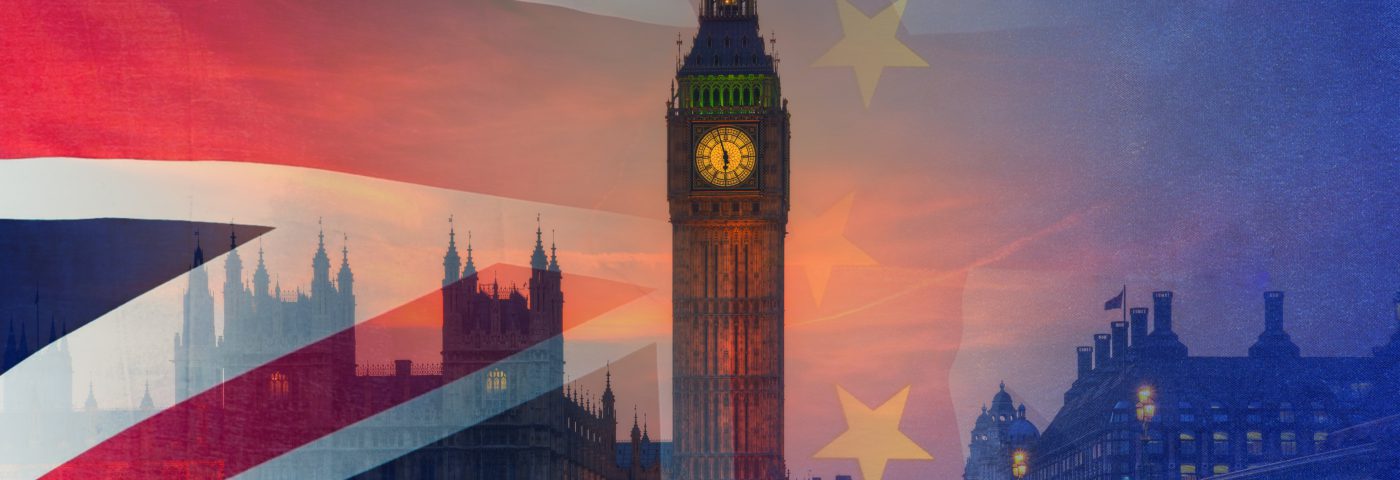WTM director takes part in BBC radio interviews to bust some of the myths about travelling now we’re in the Brexit transition period
“The nation has celebrated and commiserated in almost equal measure and the Union Jack has been removed from EU HQ, but confusion still reigns among many people about what Brexit means to travelers.
That’s understandable: Most people don’t live and breathe travel and tourism like we do at WTM London. Having just held our 40th World Travel Market in London – where the effect of Brexit on our industry was one of the topics discussed at length – we’re at the forefront of what it all means for travel.
Europe is the key number-one overseas destination for UK travellers – with over 58 million trips abroad each year, according to ABTA. Yet recent research by Discover Ferries shows 30% think they will need a visa to enter an EU country; 44% think they will have to pay for medical care as the EHIC card will no longer be valid and over a third expect to pay more in mobile roaming charges. There’s also confusion among pet owners about passports and vaccination requirements.
Given that almost a quarter (24%) of people delayed making decisions about their 2020 holiday plans until after January 31, we felt it was time to share our knowledge on this ‘Brexit perplexity’. I was invited on to BBC Radio (London and Norfolk) to give listeners the lowdown on what it all means and to share WTM’s confidence about the future of the travel industry.
Of course, the vast majority of travel destinations are outside the EU, so there is no change there.
Nor, until at least the end of this year, is there any change in travel to EU destinations, as the UK is now in a transition period, meaning current travel arrangements stay as they are.
Flights are still operating under the transition period, ferries and cruises are continuing, as most of the rules under which they operate are international, not EU. Coaches will still be able to travel to, from and around EU countries as usual. Trains from the UK to the EU will continue to operate as usual.
My main message when I took to the airwaves was: “Planes are still going to fly, trains will still go on the rails, ferries, ships and boats will all dock at ports as well.”
As far as documents and insurance go, the advice is also straightforward. Passports can still be used, even if there is less than six months before expiry. But, as always, passports do need to be valid for the whole of trip.
Drivers with a full UK licence do not need any additional documents such as International Driving Permit. Nor do they need a green GB sticker or a Green Card for car insurance.
Under EU rules, mobile roaming costs stay the same during the transition period.
Furthermore, the European Health Insurance Card (EHIC), which allows any EU citizen to access state medical care when they are travelling in another EU country, is still valid for UK travellers throughout 2020. However, EHIC has always had limitations, which is why taking out travel insurance at the time of booking the trip is a must.
Brexit-specific insurance is not necessary, but we’ve all heard stories of eye-watering costs of repatriating a UK citizen for medical reasons. At WTM, we advise to always purchase travel insurance at the same time as booking the holiday itself. Also, the correct insurance is a must – covering individual medical conditions and planned activities.
The best way to protect your holiday is to book a package – it is then the travel provider’s responsibility to make sure your holiday is provided and to offer an alternative or refund if it cannot be delivered.
There’s much to iron out during the transition period, but we all know how much Brits love their holidays and this will not change. Brits are travelling more, both at home and abroad, so the domestic market is benefiting too.
Favourable sterling rates mean the UK is an affordable destination for overseas visitors, which is great for our economy.
Over the three days of WTM London 2019, 50,000 of the world’s most senior travel and tourism professionals came to ExCel, London, to take part in more than 1, generating over £3.71 billion of business deals and north of £107 million for the London economy.
Post-Brexit WTM London will continue be the place where the world’s travel and tourism industry will meet to make decisions on those must-visit destinations that appear in the latest travel brochures, websites and high-street travel agency windows, enticing people to go on holiday.
What will happen after December 31 2020 will be unveiled in the coming months. Rest assured, our network of experts from all industry sectors will be at WTM London 2020 in November to share the latest developments. The key message right now is that it’s business as usual.”

